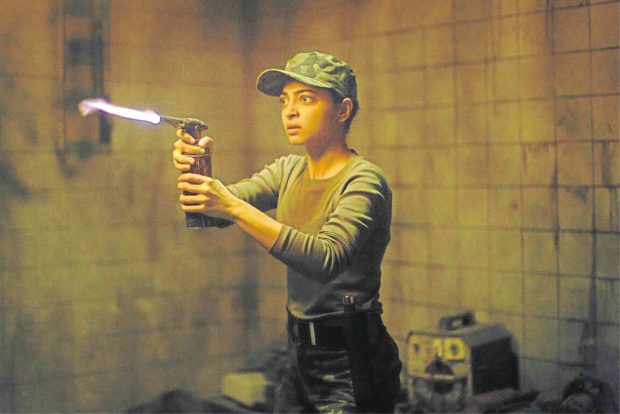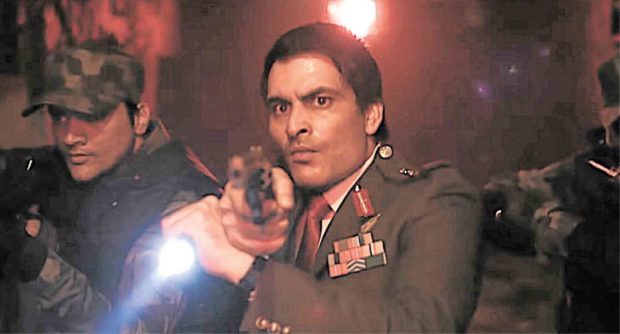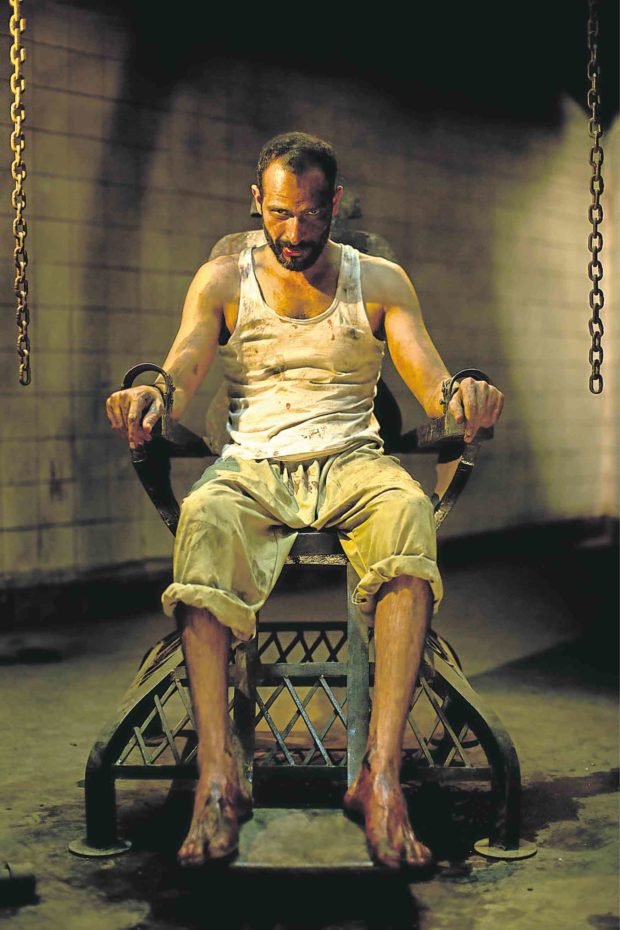How ‘Ghoul’ stars channel sense of disquieting dread, evil menace
MUMBAI—Batten down those hatches! After its requisite story-setting sequences, “Ghoul” quickly unleashes its inventive storytelling tacks and “scarifying” tactics that will in no time have viewers shaking like a leaf.
Netflix’s three-episode Indian horror-drama series and its attractive stars, Radhika Apte and Manav Kaul, may not immediately ring a bell to Filipino viewers, but there are good reasons for streaming aficionados in more than 190 countries to rally behind it, not the least of which is the show’s ability to consistently generate a lingering sense of disquieting dread and evil menace.
Based on Arabic folklore, the series, which was launched globally yesterday, takes place in the near future, when sectarian violence has reached a tipping point.
Abusive practices
With a military clampdown in effect, the government has established secret detention centers in an underground city where seditious prisoners like Ali Saeed (the creepy Mahesh Balraj), who’s been on the run from government operatives for 30 years, are interrogated and tortured.
Article continues after this advertisementSeeing the military’s abusive practices under the command of Lt. Col. Sunil Dacunha (Manav) is new recruit Nida Rahim (Radhika), who’s infamous for turning in her own father Shanawaz, an antigovernment activist believed to have close ties with Muslim terrorists.
Article continues after this advertisementIt doesn’t take long for Nida to realize that the uncooperative new prisoner is not of this world, especially after Ali begins turning the tables on his interrogators—by exposing their most shameful secrets!
Traction
The miniseries owes much of its audience-hooking traction to lead actors who wear their fears on their sleeve, as well as to the interplay of provocative themes tackling the perception of sin, guilt, retribution, and even nature versus nurture.
Last Monday, we sat down with the lovely Radhika and the affable Manav at the swanky Taj Lands End in West Mumbai for this exclusive two-on-one chat about “Ghoul.”
Our Q&A with the actors:
“Ghoul” is coproduced by Jason Blum (of Blumhouse), who’s behind such well-received dramatic chillers as “Insidious,” “The Purge,” “Paranormal Activity” and HBO’s acclaimed series “Sharp Objects.” Wasn’t the idea of living up to those aforementioned titles daunting?
Radhika (R): That was mostly director Patrick Graham and producer Vikramaditya Motwane’s headache, but they’re really good at their jobs. They made sure we had enough rehearsals and enough understanding of what we were doing.
How did you feel about the series having only three episodes?
R: Initially, “Ghoul” was shot as a film. Then, Netflix came on board and turned it into a miniseries, which I think is the best thing that could happen to a project like this. That way, it neither feels too short nor too stretched.
Manav (M): Yes, and you can watch it in one go.
Radhika, you were compelling in “Lust Stories,” “Sacred Games,” the first Netflix original series from India, and now in “Ghoul”—which are all being streamed on Netflix. Are you anything like Kalindi, Anjali and Nida, your characters in those films?
R: I’m nothing like Kalindi or Nida, but there are certain things about them that I can relate to, like Nida’s passion and determination. If I want something, I pursue it. I don’t have Anjali’s calmness at all (laughs). I probably have more of Kalindi’s anxiety in “Lust Stories”—she’s the closest to me.
You don’t have to like the characters you play, but you have to empathize with them—I think that’s one of the most powerful things you can do, as a person and an artist. If you need to get into her skin and understand why she does what she does, you can’t judge her.
Ambiguous roles are always fascinating to see onscreen. Manav, how do you relate to your character, Sunil Dacunha, Nida’s protective but secretive boss?
M: We’re poles apart.
But, that’s exactly why I find acting therapeutic—you inhabit someone else’s skin for a while, then you snap out of it and go back to your boring self (laughs).
Did you channel the darkness required for this story using your own personal struggles?
R: I do that sometimes. But, drawing from your own experiences can get tiring, so I prefer my characters to have backstories. And it isn’t much of a problem if you’re familiar with your characters’ emotions.
M: We bring our personal experiences into our characters. When I was reading Fyodor Dostoevsky’s “Crime and Punishment,” I was obsessed with it. I thought I could fully relate to [the mental anguish and moral dilemmas of the protagonist] impoverished ex-student Raskolnikov from the get-go. But, you don’t always have to do that.
In “Ghoul’s” case, it was exciting just to get everything from the script.
You’re both accomplished theater actors. How does theater inform your portrayals?
R: There are two things I take from my forays into theater: Foremost is discipline. The other one, being an actor working in India, is the fact that you aren’t doing it for the money—you do it because you like it. There’s a humility that comes with it.
You do all kinds of jobs. Sometimes, you sweep the floor and learn from that experience. So, when I work in films, I’m always very aware of my surroundings and appreciative of how hard people work.
M: Since I write, direct and act in plays, I’ve learned so much about storytelling. So, instead of concentrating on just what you’re tasked to do, you’re able to see the bigger picture very easily—which helps enhance your characterization and the story itself!


